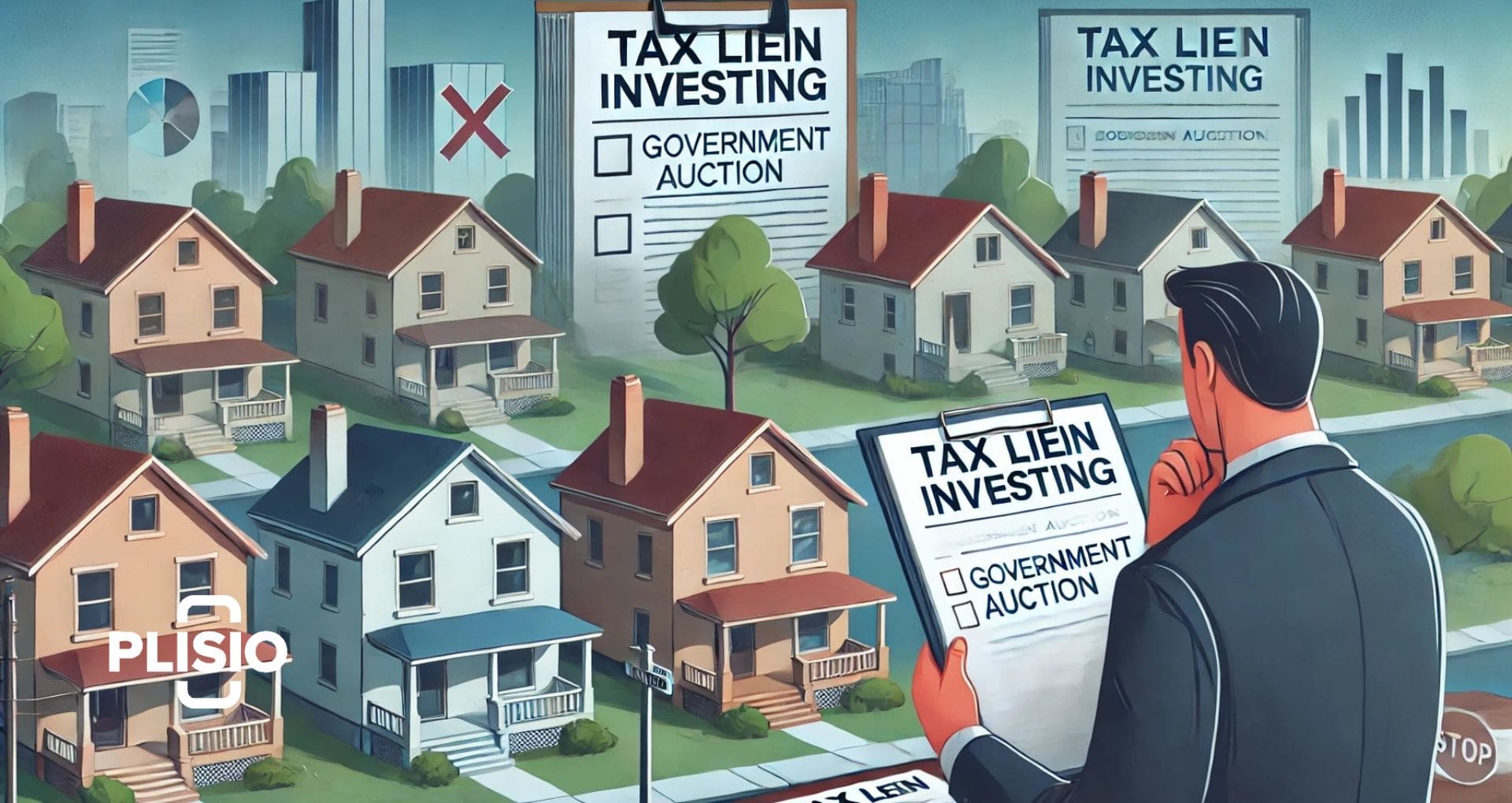Tax Lien Investing for Beginners

If you're interested in expanding your financial portfolio, tax lien investing may offer a unique avenue. In this guide to tax lien investing, we’ll walk through how tax lien investing works, what makes it attractive to a new investor, and the key considerations for success. For anyone looking to invest in real estate, learning about tax liens and tax deeds is a must.
What Is a Tax Lien?
A tax lien is a legal claim the local government places on a property when the property owner fails to pay their property tax. The lien is a legal claim allowing the government or tax authority the right to collect unpaid tax debt. If the owner fails to pay, the government may place a lien on the property and later foreclose on the property.
When the government issues a tax lien certificate, investors can purchase it at a tax lien auction. These certificates represent the tax liability owed by the property owner, including penalties and an interest rate. If the tax lien isn’t redeemed within a specified tax year, the lien holder may be entitled to initiate foreclosure proceedings and claim ownership of the property.
Why Choose Tax Lien Investing?
Tax lien investing isn’t for everyone, but for those involved in tax lien investing, the investment opportunities can be substantial. You can start investing with relatively low capital, enjoy tax benefits, and earn a fixed interest rate on the lien—often between 5% and 36% depending on the state tax laws.
It’s an alternative form of real estate investing, where the investment is secured by real estate, but without owning it outright. If the property owner fails to pay the tax, the lien holder may eventually gain full ownership of the property through tax deed investing.

How the Process Works
- Delinquent Tax Notice: A delinquent property owner fails to pay their property taxes.
- Tax Lien Sale: The local government holds a tax lien sale or auction to recover the local tax revenue.
- Purchase Tax Liens: As an investor, you bid on a tax lien in-person or via online auction.
- Tax Lien Certificate: If you win a tax lien, you receive a tax lien certificate.
- Redemption or Foreclosure: If the property owner fails to pay the tax bill, you can either earn interest or foreclose on the property.
Comparison of Tax Lien vs. Tax Deed Investing
|
Feature |
Tax Lien Investing |
Tax Deed Investing |
|
Ownership of Property |
No |
Yes (after foreclosure) |
|
Income Type |
Interest rate on tax owed |
Potential resale value of the property |
|
Entry Cost |
Low to Moderate |
Moderate to High |
|
Redemption Period |
Yes |
Typically No |
|
Risk Level |
Moderate |
Higher |
|
Time to Profit |
Months to Years |
Immediate (upon sale) |
|
Involves Foreclosure Process? |
Only if not redeemed |
Yes |
Understanding the Auction Process
Auctions can be conducted online or in person. As a bidder, your goal is to either bid down the interest rate or bid up the premium for the tax lien certificate. Once you purchase tax liens, you are now responsible for waiting through the redemption period. If the property owner does not pay the tax, you may proceed with foreclosure.
To buy tax liens, you’ll need to register with the tax collector and understand local rules. States may differ significantly in how they conduct auctions, how tax lien certificates and tax deeds are handled, and how long the redemption period lasts.
Due Diligence and Risks
Proper due diligence involves examining property value, title issues, and other outstanding liens, including federal tax claims. A mistake in research the properties could mean buying into a worthless lien on the property.
Additionally, some property owners may never pay the tax or redeem their lien, meaning your funds could be tied up. It’s critical to be aware of delinquent tax lien scenarios and to prepare for legal costs if you need to foreclose on the property.
Financial Considerations
Besides earning a high interest rate, a tax lien investment may offer certain tax benefits, such as a potential income tax credit, tax refund, or deduction on your individual income tax return. You should consult a CPA regarding reporting your earnings on your tax return.
You must pay the tax bill upfront and ensure you understand the timeline in your jurisdiction. Always assess the tax liability, evaluate your investment, and be aware of possible new tax encumbrances.
Building a Strategy
For those looking to investing in tax lien certificates, here are essential strategic elements:
- Buying tax liens in states with favorable laws.
- Using platforms to find tax liens for sale.
- Understanding the tax lien code thoroughly.
- Exploring both lien certificates and tax deed options.
- Working with mentors or licensed advisors.
When you purchase a tax lien, ensure the property taxes owed are accurate. Know that if the fails to pay the tax continues for long, you could obtain full ownership of the property.

Conclusion
Investing in a tax lien can be a low-cost way to enter the real estate market while helping cities recover local tax funds. Whether you're diversifying your portfolio or just start investing, investing in tax liens gives access to unique passive income streams. The key is learning, executing due diligence, and managing your risk.
While this strategy isn’t risk-free, those who understand the process and laws can unlock high-yield opportunities through tax lien investment. The government’s need to recover unpaid property taxes makes this a stable niche for long-term investors.




